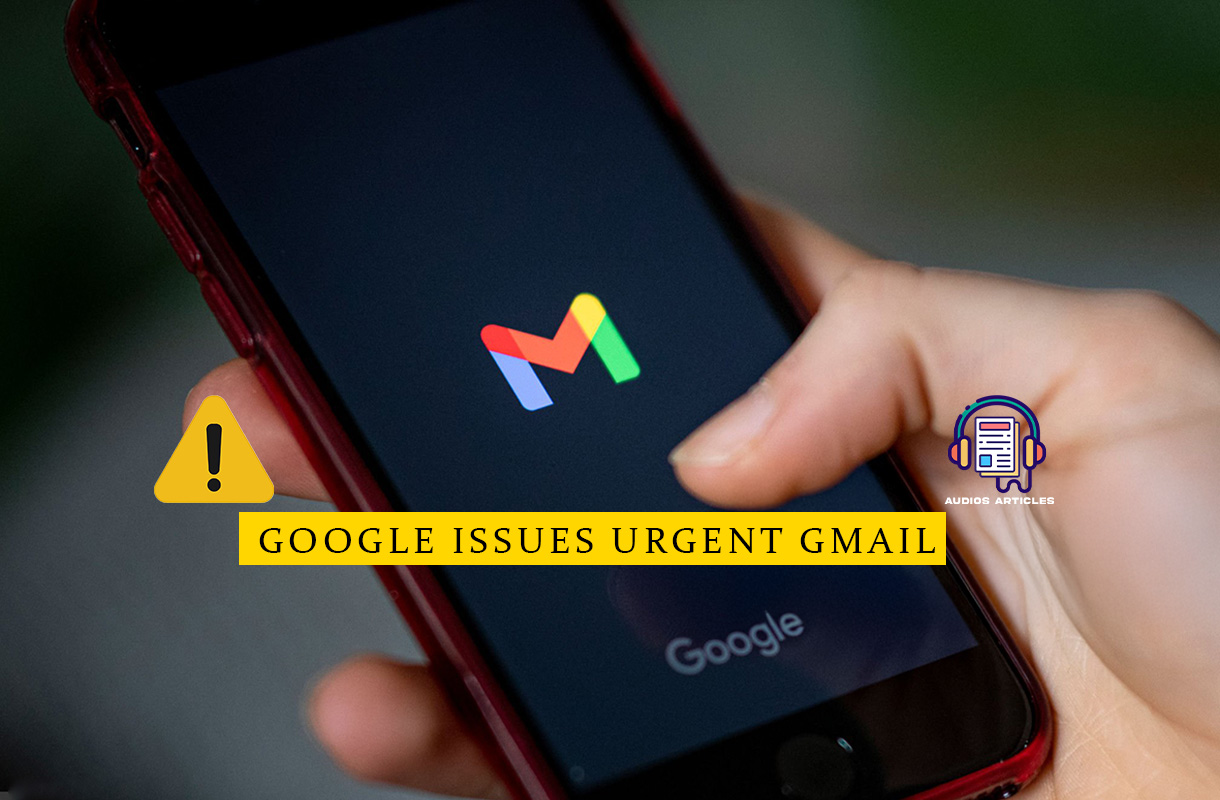Google Issues Urgent Gmail Warning.

Google is rolling out sweeping and mandatory changes to its Gmail account security protocols, with a stark warning to its vast user base: failure to comply with new security measures within a strict deadline could result in permanent loss of account access. This unprecedented move underscores Google’s escalating battle against the surging tide of sophisticated cyber threats, particularly cunning phishing attacks that are becoming increasingly difficult to discern from legitimate communications.
The tech giant has already initiated the dissemination of personalized warnings to users via email and login notifications. These alerts are not mere suggestions; they are clear, unequivocal ultimatums demanding users to update their security settings within a narrow window of 15 to 30 days. The message is unambiguous: non-compliance will lead to immediate account lockout upon the expiry of this critical grace period.

The Driving Force: A New Era of Cyber Threats
Google’s decisive action is a direct response to the alarming evolution of phishing scams and fraudulent messages. Cybercriminals are now leveraging advanced techniques, including artificial intelligence (AI), to craft highly convincing fake emails, deepfakes, and malware that can easily bypass traditional security filters. Phishing attacks alone accounted for a staggering 36% of all cybersecurity breaches in 2024, causing losses exceeding $12.5 billion – a 25% increase from the previous year. Alarmingly, experts predict these numbers will continue to rise significantly through 2025. Approximately 80% of reported cybercrimes are now attributed to phishing attempts, often beginning when an unsuspecting employee or individual falls victim to a deceptive email. This heightened threat landscape necessitates a radical recalibration of security measures, and Google is taking the lead.
Essential Steps for Gmail Users to Avoid Account Lockout
To safeguard their accounts and maintain uninterrupted access, Gmail users are now mandated to take several critical steps:
- Mandatory Two-Step Verification (2SV): This is the cornerstone of Google’s new security mandate. Users must activate 2SV, which introduces an essential second layer of protection beyond the traditional password. This second step can involve a unique code sent via SMS to a registered phone, a prompt delivered through official Google apps (like Gmail or Google Photos on a smartphone), or even the use of physical security keys. This crucial measure dramatically reduces the risk of unauthorized access, even if a user’s password is stolen. Users can enable 2SV by visiting myaccount.google.com/security.
- Phasing Out Legacy Applications: Google is urging users to abandon older applications that do not support modern and secure login protocols. These outdated applications often present vulnerabilities that cybercriminals can exploit.
- Transition to OAuth 2.0: A fundamental shift is required towards the more secure OAuth 2.0 system. This widely adopted authorization framework allows applications to gain limited access to user accounts without requiring the user to share their actual credentials. OAuth 2.0 significantly enhances security by using expiring tokens, making it far more resistant to breaches compared to older authentication methods. Most modern applications already integrate this robust system.
- Updating Recovery Information: Users are strongly advised to update and verify their recovery information, including a secondary email address and a reliable phone number. This seemingly simple step is a critical safety net, potentially saving hours or even days of distress and effort if a user ever loses access to their account. Google uses this information to verify identity during account recovery processes.
The Broad Implications of Neglecting Security
The ramifications of ignoring these new security directives extend far beyond just losing access to an email inbox. A Gmail account in today’s digital ecosystem serves as a central hub, a gateway to a myriad of sensitive personal and professional services. This includes Google Drive documents, Android accounts, personal calendars, Google Pay, and even smart home devices connected through a Google ecosystem. Consequently, a breach of a Gmail account can effectively translate into a comprehensive compromise of an individual’s entire digital life. The stakes have never been higher.
Part of a Larger, Proactive Security Strategy
These intensified security measures for individual users represent the second phase of a comprehensive security strategy Google initiated in October 2023. That initial phase focused on imposing stringent security requirements on large-volume email senders to combat spam and phishing at a broader level. Now, the emphasis shifts to individual account holders, bringing everyone under the umbrella of enhanced protection.
In an increasingly perilous digital landscape, where cybercriminals relentlessly innovate their attack methodologies, Google is demonstrably committed to elevating its security posture to unprecedented levels. While these changes may necessitate a brief period of adjustment for users, the long-term benefits of a more secure digital environment far outweigh any temporary inconvenience. Google’s urgent warning is a clear call to action, emphasizing that proactive security is no longer an option, but a fundamental requirement for navigating the complexities of the modern internet.

Google’s Urgent Gmail Warning: Act Now or Lose Access
Google is implementing critical security changes for Gmail accounts. You must enable two-step verification and update your security settings within 15-30 days, or risk losing permanent access to your account.
This isn’t optional; it’s a mandatory step to combat the rise of sophisticated phishing attacks. Your Gmail account is the gateway to your digital life, including Google Drive, Android, and smart home devices. Ignoring this urgent Gmail warning could lead to a complete compromise of your online presence.
Google Issues Urgent Gmail Warning Google Issues Urgent Gmail Warning Google Issues Urgent Gmail Warning Google Issues Urgent Gmail Warning Google Issues Urgent Gmail Warning Google Issues Urgent Gmail Warning Google Issues Urgent Gmail Warning Google Issues Urgent Gmail Warning Google Issues Urgent Gmail Warning
Take action now to secure your account.

